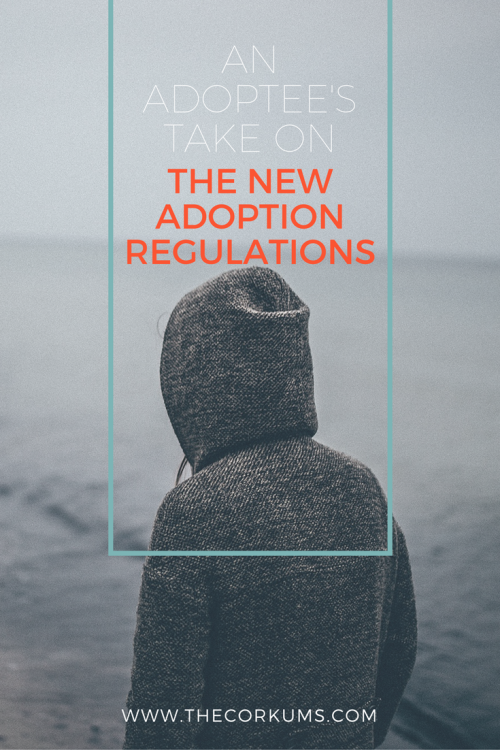
Welcome to National Adoption Month. It seems an appropriate time to lend my two-cents to the Department of State’s proposed amendments to the “requirements for accreditation of agencies and approval of persons to provide adoption services in intercountry adoption cases.”
In case you’re new around here, I’m a Korean, adult adoptee with who has welcomed 4 out of 6 kids into our family through adoption. Our lives have also intersected with youth who have aged out of the system. Our adoption story is detailed here.
I have a current love/hate relationship with adoption. I was never in the angry adoptee camp. I’ve seen “successful” ones, but I’ve also seen it destroy families and children. I am one of three adopted children. None of us share DNA, but we all came from Korea as infants. We have three vastly different experiences and perspectives on adoption. My conclusion is that each individual experiences the complexities of adoption differently. While this is isn’t rocket science, I find that people need to be reminded of it regularly because they often make blanket, sweeping statements about adoption.
Each individual experiences the complexities of #adoption differently. Click To TweetRegulations. They are a part of our culture. Some are helpful; some not so much. Regardless, you can’t legislate morality, and most regulations do not honor the differences between cultures. It’s hard for our regulations about how kids should be determined as “abandoned” to mean what we want when a lot of the language used doesn’t even have a concept in the cultures where we’re using it. We think that “morality” and “ethics” is universal, but it’s not. This is one reason that I don’t love the new regulations. It doesn’t really have much to do with how it will slow down international adoption; I just think regulation is not going to solve the problems adoption faces.
Family. I keep reading that each child has a fundamental right for a family. However, this always seems to refer to some western definition of nuclear family. I argue that many–older children especially–would benefit from staying in their birth country and culture. Often, while they may not have a biologically related set of parents, they have community and people who love them there. However, technically none of those people fit our definition of “family,” so they are groomed by people in the international adoption pipeline to think they need more. Consequently, they leave everything they know for over a decade, and what has defined them, to move to a new country, with new food, with new language, and with a definition of family that they had never encountered before. It is not what they signed up for. The trauma of that significant of a change has completely stumps their growth as people and sets them back in numerous ways. They lose close relationships and often are not equipped to replace them. Their past relationship trauma also prevents them from accepting help from those who could help them recoup lost relationship and heal. In some ways, they are more “orphaned” here than they were in their countries of origin. In some situations with younger children, international adoption takes them away from a long-term foster family who loves them and would keep them if finances were a little better or the culture of adoption was a little different. The pressure to place children into the intercountry adoption pipeline may be stifling the growth of acceptance of domestic adoption in other countries. I know these scenarios do not apply to all children waiting for intercountry adoption, but they apply to enough that they need to be part of the larger conversation.
Which battle to fight? While the this blogger argues poverty isn’t the only reason families relinquish children, I think this is a cop out for not doing hard work in countries to keep children in their community. If Jayme had done any research on the far reaching effects of poverty, its trauma, and how that changes brains, pyschology, etc, she may change her tune. Or maybe she just has poverty pegged as lack of money…not true. I have said for years that the barriers to international adoption may be God forcing us to start thinking outside the proverbial adoption box for other solutions for children around the world. Quite frankly, I’m sick of hearing arguments for why children would be better off in western-leaning, developed countries.
Balance and miracles. All that said, I am not against international adoption and understand the role it has played and could play in a complete solution to serve children worldwide. I do think it’s overemphasized, and we spin our wheels fighting against regulations that we may not be able to change when we could put energy into alternate solutions. Regardless of how our international adoption of our children has wrecked havoc in our lives, I see how God has redeemed it, and I don’t regret our decision. However, I wouldn’t recommend it either.
As Pierce Pettis said about being a songwriter, I say about adoption, “I wouldn’t trade it for the world, but also wouldn’t wish it on my worst enemy.”
I wouldn't trade it for the world, but also wouldn't wish it on my worst enemy. #adoption #nationaladoptionmonth Click To Tweet